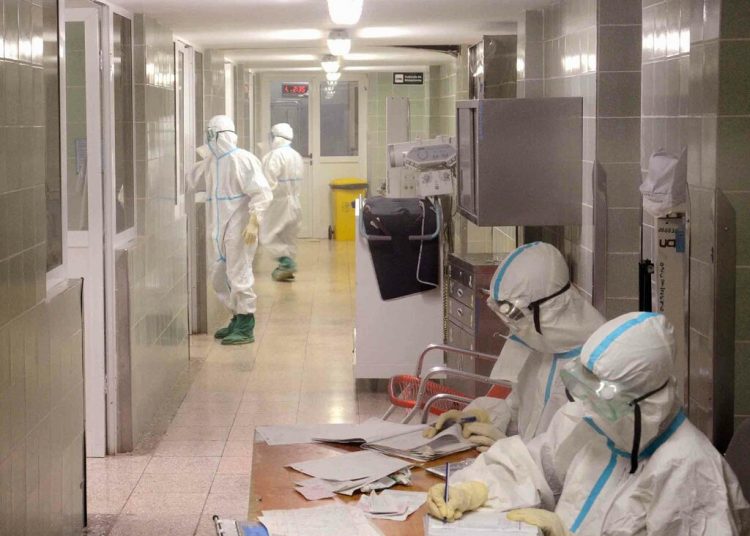After the inspections that led to the high lethality of the coronavirus registered in April, when 229 Cubans lost their lives to COVID-19, the Ministry of Public Health identified a set of problems that directly affect the control of the disease and that “go beyond the context of transmission,” according to Minister of Public Health José Ángel Portal Miranda.
For Portal Miranda, these problems have to do with deficiencies such as “delays in the arrival of patients to the system,” “failures in classification,” “high-risk patients who go to low-risk centers,” delay in the detection of “symptoms of aggravation in admitted patients,” as well as “patients who are admitted with decompensated basic pathologies or become decompensated with the disease complicating their clinical management.”
https://twitter.com/PresidenciaCuba/status/1389406873661607943?ref_src=twsrc%5Etfw%7Ctwcamp%5Etweetembed%7Ctwterm%5E1389406873661607943%7Ctwgr%5E%7Ctwcon%5Es1_&ref_url=https%3A%2F%2Foncubanews.com%2Fcuba%2Fcoronavirus-autoridades-sanitarias-cubanas-detectan-fallas-institucionales-que-inciden-en-la-mortalidad%2F
During this Monday’s meeting of the temporary workgroup for the prevention and control of the new coronavirus, and as seen in a television report, the minister also referred to “a group of actions that has to do with patients’ stay in intensive care” and that point “to opportunistic germs that also generate complications.”
In this sense, last week a tweet from the President of the Republic, Miguel Díaz-Canel Bermúdez, reported that he had “ordered a review of the work in the ICUs and delving into all the causes of the outbreak of COVID-19 in Cuba.”
The fatality rate in April reached 0.73% and the territories with the highest number of deaths were Havana and Matanzas, in both cases related to the high incidence rate per 100,000 inhabitants. Camagüey was the third territory where more people lost their lives as a result of the disease in the fourth month of the year.
This Monday’s meeting was headed by Díaz-Canel, and member of the Political Bureau and Prime Minister Manuel Marrero Cruz, who, given the current epidemiological scenario, “drew attention to common events such as the low perception of risk due to part of the population, the failure to identify all the contacts of confirmed cases, the ineffectiveness of the active search for symptomatic cases and other issues that lead to indiscipline and violations of the provisions,” the presidency’s website published.
Coronavirus in Cuba: patients in intensive care reach 115 in one day
Marrero stressed the importance of conducting a thorough analysis of the causes that led to the situation experienced in April, as well as to draw “the experiences that allow us not to make the same mistakes in other places.”
During the meeting, the epidemiological complexity being experienced by Havana, where the number of infections continues to be high, was also ratified. In fact, on Monday it reported 658 infections and continued to lead in terms of incidence rates in the last two weeks, followed by Matanzas and Mayabeque.










